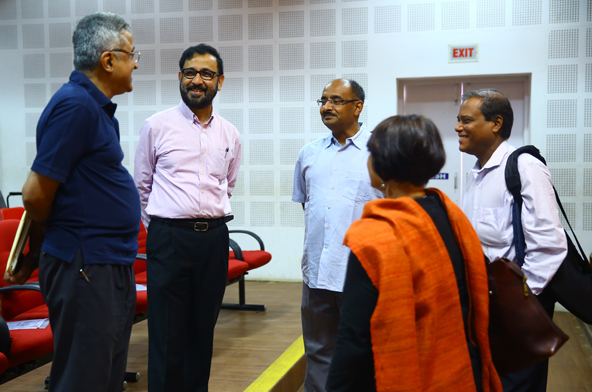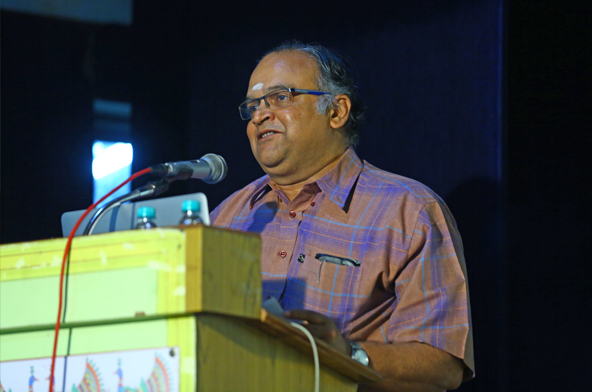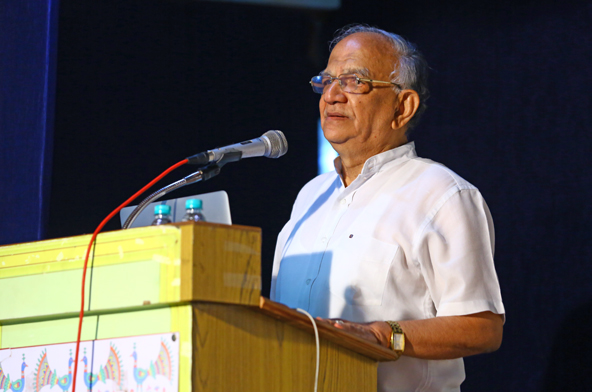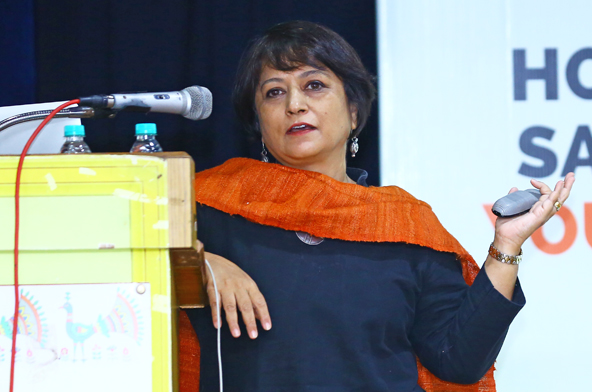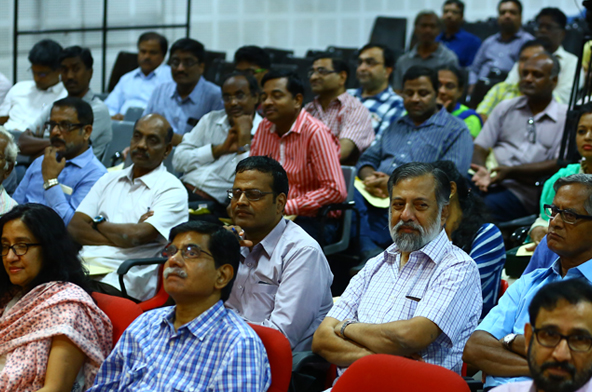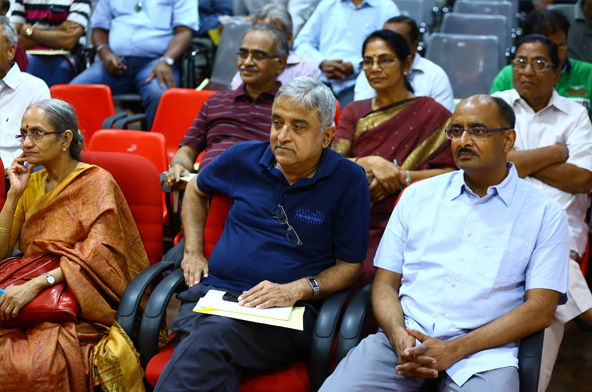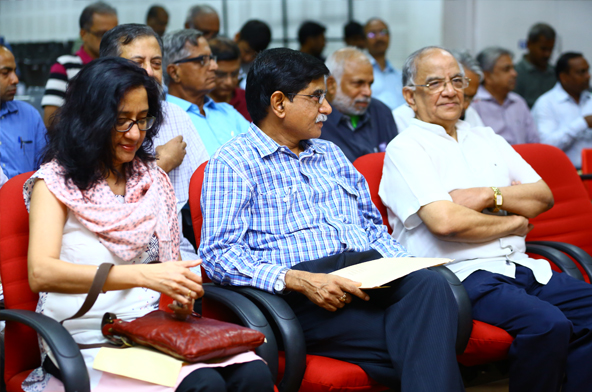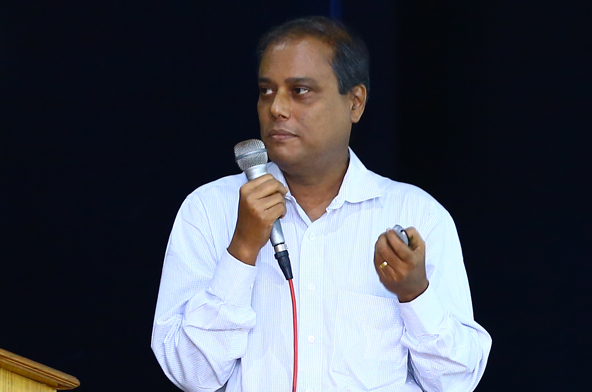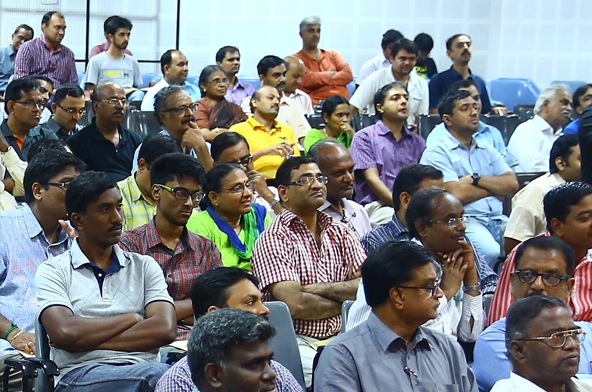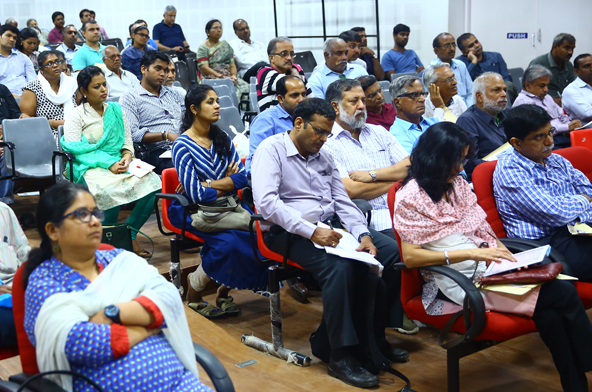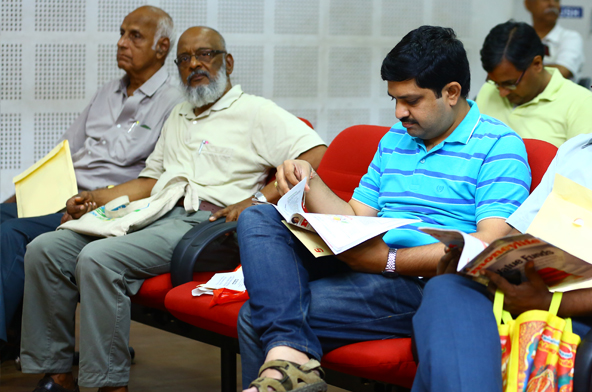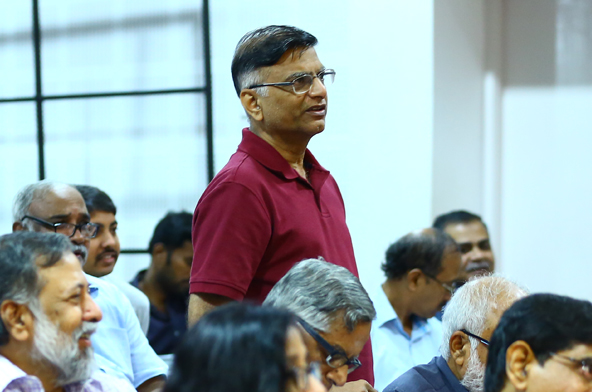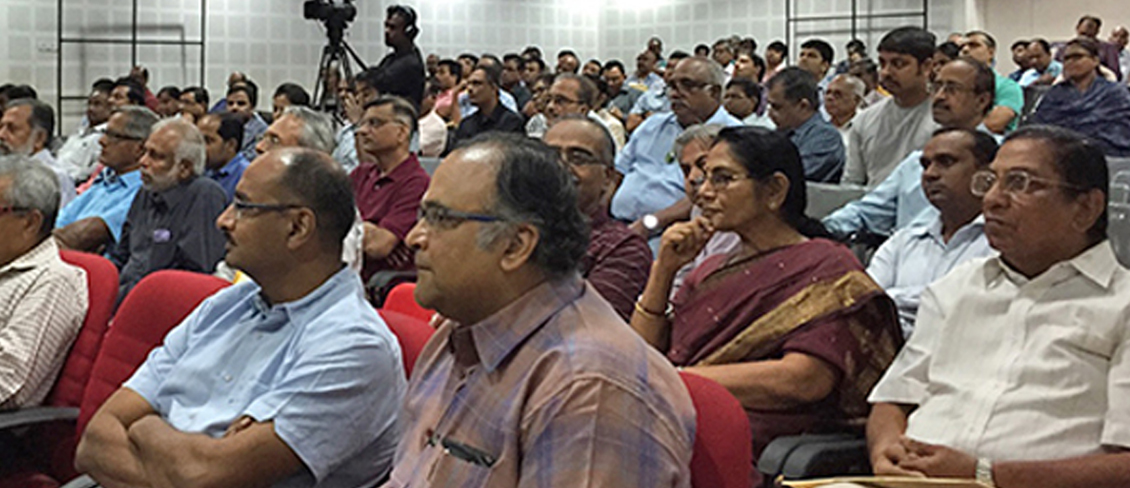
Moneylife Foundation conducted yet another successful, educative and highly interactive seminar—”Be Safe and Smart with Your Money” in Chennai. This was the second such seminar conducted by Moneylife Foundation in Chennai. The flagship seminar has two distinct sessions separated by a short break. The first is by Sucheta Dalal, managing editor of Moneylife and founder trustee of Moneylife Foundation. The second session is by Debashis Basu, editor and founder trustee of Moneylife Foundation.
Ms Dalal’s session was titled ‘How to Be Safe with Your Money’. She started the session by pointing out that financial products are fundamentally different from consumer products. You can test-drive a car but you cannot test-drive a mutual fund; the fate of your investment becomes clear only after a year or more. Moreover, in the real world, brand names mean something. Not so in financial world where financial consumers report bad experience from the best of brands. People translate their experience of buying consumer products into financial world and later repent their decision, she added.
The six mantras, articulated by Ms Dalal, include – not losing money, insuring for securing future, avoiding credit and investment traps, focusing on few safe products, avoiding emotional traps and maintaining financial hygiene.
Many have lost huge amounts of money in pyramid, Ponzi, multi-level marketing (MLM), chain marketing and chit funds such as Herbalife, Amway, Saradha, Rose Valley, SpeakAsia, Gold Quest or Qnet. There are various chain marketing schemes, which operate at every level in the country and cheat even the poorest of people. Moneylife has consistently written about these schemes.
How to bank safely? When it comes to choosing a bank, Ms Dalal cautioned the audience against going in with small cooperative banks or credit societies. As for private banks, Ms Dalal pointed out said that relationship managers usually work only to earn themselves fat commissions from your investments. Thus, many “relationship managers” resort to mis-selling or hard selling a product. If you do buy anything from them, have all your communication documented, she cautioned.
Several people want to have a credit card and do not even read the terms and conditions, especially the interest rates and charges that are usually in the range of 40% to 65%.
Another point to keep in mind is that one should not use credit card to withdraw cash, as this is termed as instant loan and needs to be paid separately. Even in the part repayment, the cash (withdrawn) is adjusted last, she added.
Ms Dalal, explained that credit history, credit score and reports which are becoming increasingly important. She said, all your borrowings and repayments for credit card, student or education loan and other loans, are tracked by credit information companies, like CIBIL, Experian, CRIF Highmark and Equifax. Looking at the increased use of credit reports, credit history of borrowers and credit scores by lenders, Ms Dalal said one needs to be really careful in financial dealings, especially while availing and repaying any loan or credit card. This is because, not paying EMIs or credit card dues on time and, in full, can make the person as defaulter in the credit bureau records and disallow him any kind of credit for seven long years, she added.
During the second session, ‘Be Smart with Your Money’, Mr Basu took the audience through simple steps for investing smartly. Usually we have different financial goals, such as saving on taxes, buying a house and child’s education. Mr Basu explained the different financial products available, which can help meet these goals. Further, he explained the risk and returns associated with each financial investment including the fact the huge risk of inflation eating away their wealth.
Mr Basu asked the audience to calculate everything in post-tax and post-inflation basis. He also took the audience through the pluses and minuses of different asset classes such as fixed income, gold, real estate, stocks/equity mutual funds and insurance. Most Indians prefer to invest in gold and real estate. He pointed out that most investors do not know what influences gold prices and this makes gold investing more of a speculation. On real estate, Mr Basu pointed out that we really do not know the returns we would get from our real estate investments because not enough data is available.
Stocks and equity mutual fund schemes are the best route for long-term wealth creation, based on past data. This is because well-managed businesses create profits, which get reflected in the stock prices. However, by nature, stock investments are volatile. They may decline sharply if they are overvalued. If you really want to gain from the enormous wealth that stocks and funds can create, you have to understand this and stay patiently invested in good funds or a bunch of good stocks, advised Mr Basu. Apart from the returns, Mr Basu explained the risks involved in various asset classes. He also focussed on how to be safe for retirement and how one can protect their corpus post-retirement.
The two and a half hour session concluded with a lively question and answer session. To know about future sessions, please register as a Moneylife Foundation member here.


